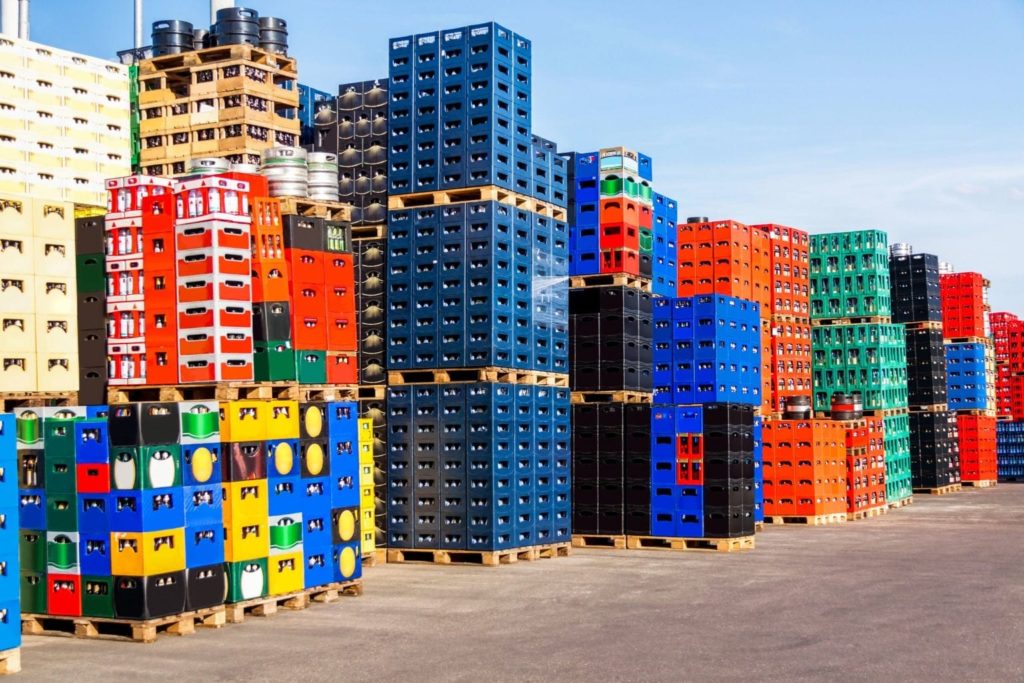by Cynthia Challener, CoatingsTech Contributing Writer
Pallets, or flat structures used to support collections of containered goods, have led to increased efficiencies in transportation and storage. Typically made of wood, but also available in plastic, metal and other materials, pallets allow the easy movement of large numbers of containers, such as cartons or drums, using forklifts, pallet jacks, or other similar devices. More advanced pallets are reusable and may include tracking devices. In some cases, coatings are applied to improve the durability of reusable pallets.
Recently, Dutch start-up company Ahrma Holding B.V. announced that it is using a new polyurethane coating from BASF to enhanced the resistance and durability of its new hybrid pallets, which are made from medium density fiberboard (MDF) and plastic.
The new pallets are, according to the companies, 25% lighter than traditional wooden pallets and last up to 10 years – significantly longer. The pallets are also designed so that individual components can be dismantled and replaced, potentially expanding the lifespan of the pallets even further. In addition, they contain an integrated transponder and come with Supply Chain Big Data (SCBD) software developed by Ahrma that allow not only tracking of the location of the pallets, but their ambient temperature and load state and any possible impact due to dropping. As a result, costs of unused, lost, and stolen pallets are reduced, plus interruptions in the cold chain and any losses incurred can be identified and processes appropriately modified, according to the companies. Notably, customers rent the pallets from Ahrma, which retains ownership.
To meet Ahrma’s performance requirements, BASF enhanced the formulation of its Elastocoat® C polyurethane spray system. It can now be directly applied to the pallets using continuous, automated spraying units to seal their surfaces efficiently, quickly and permanently. The coating provides protection against water, dirt, microbial infestation, and abrasion, and is also resistant to chemicals, wear, and low temperatures, as well as being flexible and crack-bridging, and provides a non-slip surface. As a result, it not only increases the durability of the pallets, but helps protect the goods stored on them, according to BASF. The coating also makes it easier to clean the pallets for reuse, which is particularly important for customers in the food, beverage, and pharmaceutical industries.
